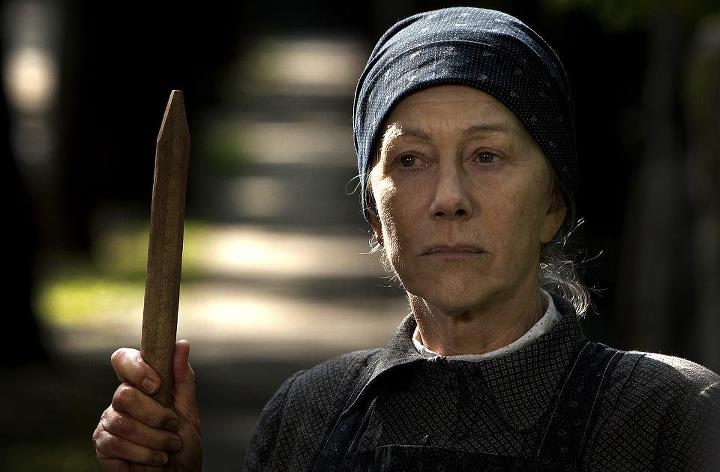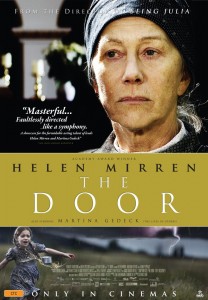A muddled effort from even the most talented of its cast members, The Door remains firmly shut in this consciously mannered adaptation of Magda Szabó’s novel.
Director: István Szabó
Writers: István Szabó, Andrea Vészits, Magda Szabó
Runtime: 97 minutes
Starring: Helen Mirren, Martina Gedeck, Károly Eperjes
Distributor: Rialto
Country: Hungary
Rating (?): It’s Your Money (★½)
In constructing his adaptation of Magda Szabó’s prize-winning Hungarian novel The Door, veteran filmmaker István Szabó has given into the temptation of relying too heavily on the performance of a central actor. Set in 1960s Hungary, the film touches briefly on some of the subjects of state control that has intrigued the director in the past, yet the focus here is on an unlikely bond between two women, and the equally unbelievable set of events that unfolds around them.
Magda (Martina Gedeck) and her husband, Tibor (Károly Eperjes), have come to live in a remote manor, largely so that Magda can concentrate on her writing. They invite elderly washerwoman Emerenc (Helen Mirren) to do their housework, and Magda is initially put off by Emerenc’s gruff attitude. Despite this, and a seemingly endless series of mood-swings and eccentricities on Emerenc’s part, not to mention the secrets she keeps behind the door to her apartment, the pair form a kind of friendship.
Yet film struggles to explain why Magda and Emerenc develop a relationship at all, perpetually feeling as though every other scene has been removed to keep us in a state of confusion. Emerenc’s wild mood swings, from gruffness to turning up at early hours with breakfast in bed and poetry, are difficult enough to tolerate, but a completely unlikely bond forms between the two women regardless. It’s a battle of wits between two unarmed opponents. Magda is painted as an otherwise cultured writer, so it is difficult to comprehend why she would even tolerate Emerenc let alone form a strong friendship with her. It is a gap that Szabó never bridges, leaving a empty space in the middle of the barest shell of this drama of manners.
Any dramatic tension in the film lies around the titular door to Emerenc’s small apartment, and what lies behind it remains a mystery for much of the film. Drowning all activity in an overbearing score, the ultimate dramatic reveal is predictably underwhelming, and leads to an incredibly rushed dénouement. Crafting itself as an artificial stage play, there is nothing in The Door for audiences to hold onto. Some obvious dubbing of the local cast into English gives the film another intangible distance to bridge, diminishing the flow of dialogue and forcing the principal cast to emphasise every word in an unnaturalistic way. In many ways Mirren’s is a brave performance, shedding her “still sexy at 66” image in favour of someone nearing the end of their life. Yet she also seems to be most guilty of the same strategic mannerisms, stiffly and conscious delivering every line, perhaps to remind us that she is acting. The Door is an intriguing premise poorly executed, and any chance of connection remains locked away.
The Door is released in Australia on 19 July 2012 from Rialto Distribution.





